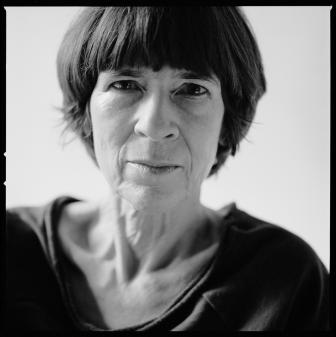Eva Gerlach

Eva Gerlach
Snelle introductie
Dat Eva Gerlach een belangrijke plek inneemt in het Nederlandse poëzielandschap, valt niet te betwisten: de dichter die in 1979 debuteerde met haar bundel Verder geen leed, werd onder andere bekroond met de P.C. Hooftprijs voor haar gehele oeuvre, en werk van haar hand werd vertaald in vijftien verschillende talen. Jarenlang wist niemand wie er achter het pseudoniem Eva Gerlach schuilging, tot Margaret Dijkstra onthuld werd als schrijver van de bijzondere gedichten die lezers in hun greep hielden. De stijl van Eva Gerlach is uniek en herkenbaar. In haar gedichten weet ze op een fijnzinnige en haast klinische manier te schrijven over situaties tussen mensen, waardoor de emoties die achter de tekst schuilen juist meer voelbaar en echt worden. Binnen het soms surrealistische poëtische universum waarin haar personages zich bevinden, speelt Gerlach met de betrouwbaarheid van waarneming en van haar verteller. Ook met taal speelt ze een spelletje; haar gedichten kennen vaak neologismen en taalexperimenten. Ze schrijft over herinnering en verlies en als lezer voel je dat gemis. Naast verlies is er echter ook licht en kenmerkende humor, ook die blijft je bij.
Volledige biografie (Engels)
After submitting poems to several reviews from 1977 onwards, Gerlach published her first collection entitled Verder geen leed (No Further Distress) in 1979. It immediately impressed with the precise and considered organization both of the individual poems and of the whole; yet there was a strong, dark, emotional current underlying this formal control. Two years after its publication, Verder geen leed was awarded the Lucy B. en C.W. van der Hoogt Prize, an important award aimed to stimulate young writers and poets. In her many subsequent collections, Eva Gerlach developed into a poet of classical stature. The narrative tone of her early poems, born perhaps from the spirit of the age, gradually gave way to an astute, incisive plasticism, by which she seems to be trying to get a hold on life’s events.
Gerlach’s poems, in their often dark way, are concerned with the themes that have concerned poets in all ages: transience, loss, the human condition. Avoiding any tendency towards dramatic display or literary effect, she writes about the mysterious, invisible forces that govern our lives, about the thought “that in presence lives a truth/ greater than just that/ of the address.”
Eva Gerlach’s poetry has freed itself more and more from the prevailing trends in post-war Dutch poetry. Irony, therapeutic impact and linguistic autonomy, the three mainstays of the poetry of her generation, never play a significant part in her work. She is first and foremost a modest, unsentimental, yet penetrating portrayer of human emotions and motives. Over recent years it has been suggested that a stronger experimental tendency has seemed to surface in Gerlach’s poems and the more surrealistic elements are amplified. This might also be regarded a further fine-tuning of a strong and distinct poet’s tone of voice, which either whispering, stammering or speaking quite clearly always reminds us: “Whatever’s whole we fail to see” and “all that is split up sticks in us for good”.
In 2000, Gerlach received Holland’s chief literary award, the P.C. Hooft Prize, for her entire poetic oeuvre. Since then she has added several collections to her corpus, including her second book of poems for children Oog in oog in oog in oog (Eye to Eye to Eye to Eye, 2001) and her most recent title Situaties (Situations, 2006).
Links
Gerlach at the Koninklijke Bibliotheek (Dutch Royal Library, The Hague)
Gerlach at VPRO
Gerlach's publisher: De Arbeiderspers
Sponsors















